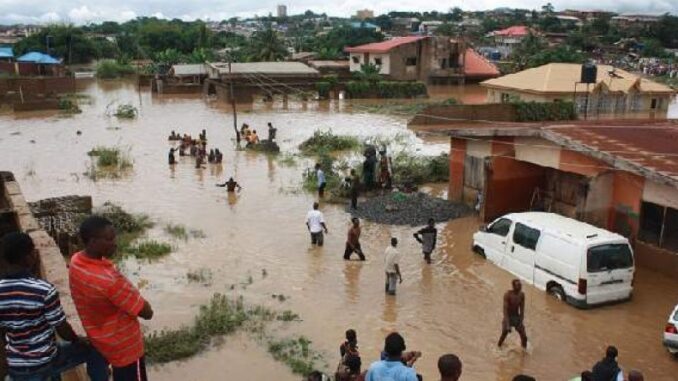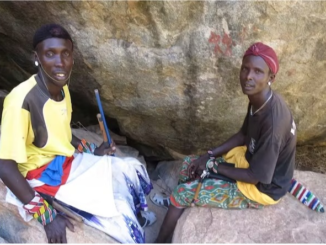

A recently released report, “State of the Climate in Africa 2022,” has unveiled alarming statistics concerning the severe impact of climate change on the African continent. Last year alone, Africa suffered staggering economic losses, amounting to more than R160 billion, while over 110 million people across the continent were directly affected by various weather, climate, and water-related hazards. These distressing revelations were brought to light during the Climate Change Week in Nairobi, Kenya, where the report was presented.
The report’s findings underscore the grim reality faced by African nations as they grapple with the growing threat of climate change. The toll on human lives is particularly distressing, with an estimated 5,000 deaths attributed to climate-related incidents. Of these fatalities, 48% were linked to prolonged droughts, while 43% were a result of devastating flooding. It is important to note that these numbers may be significantly higher due to underreporting, painting an even bleaker picture.
Professor Petteri Taalas, the Secretary-General of the World Meteorological Organization, commented on the dire situation, emphasizing the destructive impact of heatwaves, heavy rains, floods, tropical cyclones, and prolonged droughts on both communities and economies. He noted that significant gaps in weather observations in Africa and inadequate early warning services must be addressed to ensure that life-saving alerts reach everyone.
Agriculture lies at the heart of many African economies, providing employment to over 55% of the workforce. However, climate change has severely compromised the continent’s agricultural productivity, with a staggering 34% decline since 1961—higher than any other region globally. The report predicts that by 2025, annual food imports for African nations will triple from R665 billion to R2 trillion, putting additional strain on already vulnerable food systems.
Key findings from the report highlight the accelerated pace of global warming in North Africa, which experienced intense heatwaves in 2022, leading to devastating wildfires in Algeria and Tunisia. Africa, as a whole, witnessed an increase in the average rate of warming, from +0.2°C per decade between 1961 and 1990 to +0.3°C per decade between 1991 and 2022, slightly exceeding the global average.
Ethiopia, Kenya, and Somalia faced particularly severe consequences in the Horn of Africa, where the worst drought in four decades occurred. A phenomenon known as the “triple-dip” La Niña significantly contributed to this crisis, leading to five consecutive years of poor rainfall. As a result, 1.2 million Somalis experienced internal displacement due to the drought’s impact on farming and pastoral livelihoods, while Ethiopia saw an additional 512,000 internal displacements stemming from drought-related challenges.
The Sahel region, including countries like Nigeria, Niger, Chad, and Sudan, witnessed significant flooding during the monsoon season, further exacerbating the climate-related challenges faced by these nations.
The report also underscores the substantial financial resources required to address these pressing issues. Africa’s Nationally Determined Contributions (NDCs), which outline the commitments of individual countries under the Paris Agreement to combat climate change, necessitate substantial investments. Between 2020 and 2030, up to R52.3 trillion will be needed to implement these commitments effectively.
In response to this urgent need, the African Development Bank has taken significant steps to mobilize resources, aiming to generate up to R260 billion for its Africa Development Fund. Additionally, the bank has quadrupled its climate finance to R375 billion by 2025, with 67% of these funds dedicated to adaptation efforts, signaling a commitment to addressing the critical climate challenges facing the continent.
In conclusion, the “State of the Climate in Africa 2022” report presents a stark reminder of the devastating impact of climate change on Africa. The economic losses, loss of life, and disruptions to livelihoods underscore the urgency of taking decisive action to mitigate these challenges and support the continent’s efforts to adapt to a changing climate.



